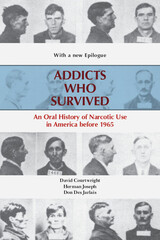
Praise for the hardcover edition:
"A momentous book which I feel is destined to become a classic in the category of scholarly narcotic books."
—Claude Brown, author of the bestseller, Manchild in the Promised Land.
"The drug literature is filled with the stereotyped opinions of non-addicted, middle-class pundits who have had little direct contact with addicts. These stories are reality. Narcotic addicts of the inner cities are both tough and gentle, deceptive when necessary and yet often generous--above all, shrewd judges of character. While judging them, the clinician is also being judged."
—Vincent P. Dole, M.D., The Rockefeller Institute.
"What was it like to be a narcotic addict during the Anslinger era? No book will probably ever appear that gives a better picture than this one. . . . a singularly readable and informative work on a subject ordinarily buried in clichés and stereotypes."
—Donald W. Goodwin, Journal of the American Medical Association
" . . . an important contribution to the growing body of literature that attempts to more clearly define the nature of drug addiction. . . . [This book] will appeal to a diverse audience. Academicians, politicians, and the general reader will find this approach to drug addiction extremely beneficial, insightful, and instructive. . . . Without qualification anyone wishing to acquire a better understanding of drug addicts and addiction will benefit from reading this book."
—John C. McWilliams, Pennsylvania Magazine of History and Biography
"This study has much to say to a general audience, as well as those involved in drug control."
—Publishers Weekly
"The authors' comments are perceptive and the interviews make interesting reading."
—John Duffy, Journal of American History
"This book adds a vital and often compelling human dimension to the story of drug use and law enforcement. The material will be of great value to other specialists, such as those interested in the history of organized crime and of outsiders in general."
—H. Wayne Morgan, Journal of Southern History
"This book represents a significant and valuable addition to the contemporary substance abuse literature. . . . this book presents findings from a novel and remarkably imaginative research approach in a cogent and exceptionally informative manner."
—William M. Harvey, Journal of Psychoactive Drugs
"This is a good and important book filled with new information containing provocative elements usually brought forth through the touching details of personal experience. . . . There isn't a recollection which isn't of intrinsic value and many point to issues hardly ever broached in more conventional studies."
—Alan Block, Journal of Social History
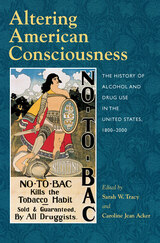
Yet, if the use of drugs is a constant in American history, the way they have been perceived has varied extensively. Just as the corrupting cigarettes of the early twentieth century ("coffin nails" to contemporaries) became the glamorous accessory of Hollywood stars and American GIs in the 1940s, only to fall into public disfavor later as an unhealthy and irresponsible habit, the social significance of every drug changes over time.
The essays in this volume explore these changes, showing how the identity of any psychoactive substance—from alcohol and nicotine to cocaine and heroin—owes as much to its users, their patterns of use, and the cultural context in which the drug is taken, as it owes to the drug's documented physiological effects. Rather than seeing licit drugs and illicit drugs, recreational drugs and medicinal drugs, "hard" drugs and "soft" drugs as mutually exclusive categories, the book challenges readers to consider the ways in which drugs have shifted historically from one category to another.
In addition to the editors, contributors include Jim Baumohl, Allan M. Brandt, Katherine Chavigny, Timothy Hickman, Peter Mancall, Michelle McClellan, Steven J. Novak, Ron Roizen, Lori Rotskoff, Susan L. Speaker, Nicholas Weiss, and William White.
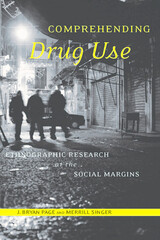
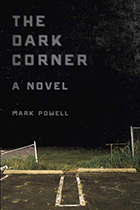
—Ron Rash, author of Serena and The Cove
"The Dark Corner is one of the most riveting and beautifully written novels that I have ever read. Trouble drives the story, as it does in all great fiction, but grace, that feeling of mercy that all men hunger for, is the ultimate subject, and that's just part of the reason that Mark Powell is one of America's most brilliant writers."
—Donald Ray Pollock, author of The Devil All the Time and Knockemstiff
“Mark Powell’s third novel powerfully tackles the ongoing curses of drugs, real estate development, veterans’ plights, and other regional cultural banes that plague an Appalachia still very much alive and with us as its own chameleon-like animal. Brimming with fury and beauty, The Dark Corner is a thing wrought to be feared and admired.”
—Casey Clabough, author of Confederado
“Powell’s work is so clearly sourced to the wellspring of all spiritual understanding—this physical world…He is heir to the literary lineage of Melville, Conrad, Flannery O’Connor, Denis Johnson, and Robert Stone.”
—Pete Duval, author of Rear View
A troubled Episcopal priest and would-be activist, Malcolm Walker has failed twice over—first in an effort to shock his New England congregants out of their complacency and second in an attempt at suicide. Discharged from the hospital and haunted by images of the Iraq War and Abu Ghraib, he heads home to the mountains of northwestern South Carolina, the state’s “dark corner,” where a gathering storm of private grief and public rage awaits him.
Malcolm’s life soon converges with people as damaged in their own ways as he is: his older brother, Dallas, a onetime college football star who has made a comfortable living in real-estate development but is now being drawn ever more deeply into an extremist militia; his dying father, Elijah, still plagued by traumatic memories of Vietnam and the death of his wife; and Jordan Taylor, a young, drug-addicted woman who is being ruthlessly exploited by Dallas’s viperous business partner, Leighton Clatter. As Malcolm tries to restart his life, he enters into a relationship with Jordan that offers both of them fleeting glimpses of heaven, even as hellish realities continue to threaten them.
In The Dark Corner, Mark Powell confronts crucial issues currently shaping our culture: environmentalism and the disappearance of wild places, the crippling effects of wars past and present, drug abuse, and the rise of right-wing paranoia. With his skillful plotting, feel for place, and gift for creating complex and compelling characters, Powell evokes a world as vivid and immediate as the latest news cycle, while at the same time he offers a nuanced reflection on timeless themes of violence, longing, redemption, faith, and love.
MARK POWELL is the author of two previous novels published by the University of Tennessee Press, Prodigals and the Peter Taylor Prize–winning Blood Kin. The recipient of National Endowment for the Arts and Breadloaf Writers’ Conference fellowships, as well as the Chaffin Award for fiction, he is an assistant professor of English at Stetson University.
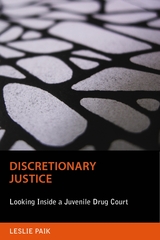
Juvenile drug courts are on the rise in the United States, as a result of a favorable political climate and justice officials' endorsement of the therapeutic jurisprudence movement--the concept of combining therapeutic care with correctional discipline. The goal is to divert nonviolent youth drug offenders into addiction treatment instead of long-term incarceration. Discretionary Justice overviews the system, taking readers behind the scenes of the juvenile drug court. Based on fifteen months of ethnographic fieldwork and interviews at a California court, Leslie Paik explores the staff's decision-making practices in assessing the youths' cases, concentrating on the way accountability and noncompliance are assessed. Using the concept of "workability," Paik demonstrates how compliance, and what is seen by staff as "noncompliance," are the constructed results of staff decisions, fluctuating budgets, and sometimes questionable drug test results.
While these courts largely focus on holding youths responsible for their actions, this book underscores the social factors that shape how staff members view progress in the court. Paik also emphasizes the perspectives of children and parents. Given the growing emphasis on individual responsibility in other settings, such as schools and public welfare agencies, Paik's findings are relevant outside the juvenile justice system.
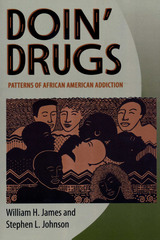
Throughout the African American community, individuals and organizations ranging from churches to schools to drug treatment centers are fighting the widespread use of crack cocaine. To put that fight in a larger cultural context, Doin' Drugs explores historical patterns of alcohol and drug use from pre-slavery Africa to present-day urban America.
William Henry James and Stephen Lloyd Johnson document the role of alcohol and other drugs in traditional African cultures, among African slaves before the American Civil War, and in contemporary African American society, which has experienced the epidemics of marijuana, heroin, crack cocaine, and gangs since the beginning of this century. The authors zero in on the interplay of addiction and race to uncover the social and psychological factors that underlie addiction.
James and Johnson also highlight many culturally informed programs, particularly those sponsored by African American churches, that are successfully breaking the patterns of addiction. The authors hope that the information in this book will be used to train a new generation of counselors, ministers, social workers, nurses, and physicians to be better prepared to face the epidemic of drug addiction in African American communities.
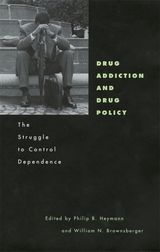
This book is the culmination of five years of impassioned conversations among distinguished scholars in law, public policy, medicine, and biopsychology, about the most difficult questions in drug policy and the study of addictions. As these intensely argued chapters show, the obvious answers are always alluring but frequently wrong.
Do drug addicts have an illness, or is their addiction under their control? Should they be treated as patients, or as criminals? Challenging the conventional wisdom in both the psychiatric community and the enforcement community, the authors show the falsity of these standard dichotomies. They argue that the real question is how coercion and support can be used together to steer addicts toward productive life.
Written in clear and forceful language, without ideological blinkers and with close attention to empirical data, this book has something to teach both novice and expert in the fields of drug addiction and drug policy. The authors' resistance to sloganeering from right or left will raise the quality of public discussion of a complex issue, and contribute to the management of one of the most painful and enduring problems of American society.
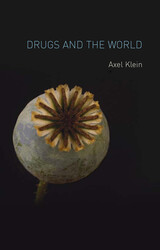
To be properly understood, drugs should not be simply examined from a negative point of view, Klein argues. From their centrality in religious rituals to their part in the growth of trade among nation-states, Klein reveals the pivotal role that drugs have played in the advancement of human society. Klein then investigates the modern policies that define certain substances as drugs; the link between drugs, addiction, and crime; and the legal strategies and policies around the world that have largely failed to control global drug trafficking. The book also draws upon studies from the Caribbean, West Africa and Eastern Europe to propose solutions that could reinforce the eroded power of state institutions, law enforcement, and the democratic process in addressing drug trafficking.
A timely and in-depth analysis, Drugs and the World offers an expertly written examination that will be essential for all those concerned with the role of drugs in the modern world.
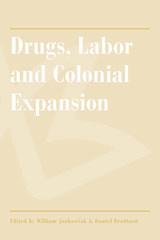
This book explores how Europeans introduced and used drugs in colonial contexts for the exploitation and placation of indigenous labor. Combining history and anthropology, it examines the role of drugs in trade and labor during the age of western colonial expansion. From considering the introduction of alcohol in the West African slave trade to the use of coca as a labor enhancer in the Andes, these original contributions examine both the encouragement of drug use by colonial powers and the extent to which local peoples' previous experience with psychoactive substances shaped their use of drugs introduced by Europeans.
The authors show that drugs possessed characteristics that made them a particularly effective means for propagating trade or increasing the extent and intensity of labor. In the early stages of European expansion, drugs were introduced to draw people, quite literally, into relations of dependency with European trade partners. Over time, the drugs used to intensify the amount and duration of labor shifted from alcohol, opium, and marijuana—which were used to overcome the drudgery and discomfort of physical labor—to caffeine-based stimulants, which provided a more alert workforce.
Valuable not only for its ethnographic detail but also for its broader insight into the nature of capitalist expansion, this collection reveals the surprising consistency of drug use in the colonial process. Drugs, Labor and Colonial Expansion is a book rich with cross-cultural insights that ranges widely across disciplines to provide a new and needed look at the colonial experience.
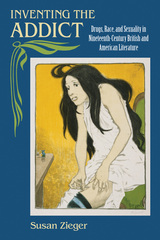
In Inventing the Addict, Zieger tells the story of how the addict, a person uniquely torn between disease and desire, emerged from a variety of earlier figures such as drunkards, opium-eating scholars, vicious slave masters, dissipated New Women, and queer doctors. Drawing on a broad range of literary and cultural material, including canonical novels such as Uncle Tom's Cabin, The Strange Case of Dr. Jekyll and Mr. Hyde, and Dracula, she traces the evolution of the concept of addiction through a series of recurrent metaphors: exile, self-enslavement, disease, and vampirism. She shows how addiction took on multiple meanings beyond its common association with intoxication or specific habit-forming substances—it was an abiding desire akin to both sexual attraction and commodity fetishism, a disease that strangely failed to meet the requirements of pathology, and the citizen's ironic refusal to fulfill the promise of freedom.
Nor was addiction an ideologically neutral idea. As Zieger demonstrates, it took form over time through specific, shifting intersections of gender, race, class, and sexuality, reflecting the role of social power in the construction of meaning.
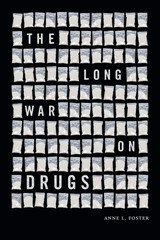
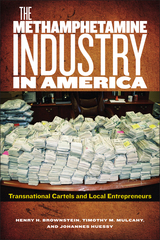
The Methamphetamine Industry in America describes the reality that this industry is a social phenomenon connecting local, national, and international communities and markets. The book details the results of a groundbreaking three-stage study, part of a joint initiative of the National Institute on Drug Abuse and the National Institute of Justice, in which police agencies across the United States were surveyed and their responses used to identify likely areas of study. The authors then visited these areas to observe and interview local participants, from users and dealers to law enforcement officers and clinical treatment workers.
This book demonstrates the importance of understanding the business of methamphetamine—and by extension other drugs in society—through a lens that focuses on social behavior, social relationships, and the cultural elements that shape the organization and operation of this illicit but effective industry.
.
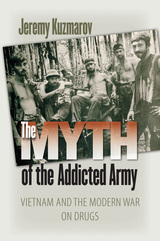
Yet as Jeremy Kuzmarov documents in this deeply researched book, popular assumptions about drug use in Vietnam are based more on myth than fact. Not only was alcohol the intoxicant of choice for most GIs, but the prevalence of other drugs varied enormously. Although marijuana use among troops increased over the course of the war, for the most part it remained confined to rear areas, and the use of highly addictive drugs like heroin was never as widespread as many imagined.
Like other cultural myths that emerged from the war, the concept of an addicted army was first advanced by war hawks seeking a scapegoat for the failure of U.S. policies in Vietnam, in this case one that could be linked to "permissive" liberal social policies and the excesses of the counterculture. But conservatives were not alone. Ironically, Kuzmarov shows, elements of the antiwar movement also promoted the myth, largely because of a presumed alliance between Asian drug traffickers and the Central Intelligence Agency. While this claim was not without foundation, as new archival evidence confirms, the left exaggerated the scope of addiction for its own political purposes.
Exploiting bipartisan concern over the perceived "drug crisis," the Nixon administration in the early 1970s launched a bold new program of federal antidrug measures, especially in the international realm. Initially, the "War on Drugs" helped divert attention away from the failed quest for "peace with honor" in Southeast Asia. But once institutionalized, it continued to influence political discourse as well as U.S. drug policy in the decades that followed.
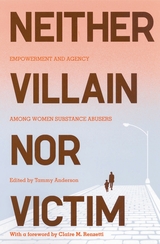
Essays explore a range of topics, including the many ways that women negotiate the illicit drug world, how former drug addicts manage the more intimate aspects of their lives as they try to achieve abstinence, how women tend to use intervention resources more positively than their male counterparts, and how society can improve its response to female substance abusers by moving away from social controls (such as the criminalization of prostitution) and rehabilitative programs that have been shown to fail women in the long term.
Advancing important new perspectives about the position of women in the drug world, this book is essential reading in courses on women and crime, feminist theory, and criminal justice.
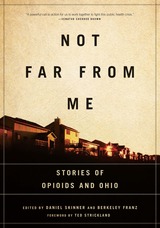
Themes of pain and healing, despair and hope are woven throughout accounts of families who have lost loved ones to addiction, stories of survival, and experiences of working on the front lines in communities. In an attempt to give every voice the chance to be heard, Not Far from Me features contributors from across the state as they engage with the pain of opioid abuse and overdose, as well as the hope that personal- and community-level transformation brings. Ultimately, Not Far from Me humanizes the battle against addiction, challenges the stigma surrounding drug users, and unflinchingly faces the reality of the American opioid epidemic.
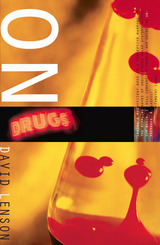

The British opium trade along China's seacoast has come to symbolize China's century-long descent into political and social chaos. In the standard historical narrative, opium is the primary medium through which China encountered the economic, social, and political institutions of the West. Opium, however, was not a Sino-British problem confined to southeastern China. It was, rather, an empire-wide crisis, and its spread among an ethnically diverse populace created regionally and culturally distinct problems of control for the Qing state.
This book examines the crisis from the perspective of Qing prohibition efforts. The author argues that opium prohibition, and not the opium wars, was genuinely imperial in scale and is hence much more representative of the actual drug problem faced by Qing administrators. The study of prohibition also permits a more comprehensive and accurate observation of the economics and criminology of opium. The Qing drug traffic involved the domestic production, distribution, and consumption of opium. A balanced examination of the opium market and state anti-drug policy in terms of prohibition reveals the importance of the empire's landlocked western frontier regions, which were the domestic production centers, in what has previously been considered an essentially coastal problem.
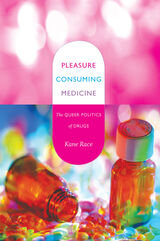
Race does not suggest that drug use is risk-free, good, or bad, but rather that the regulation of drugs has become a site where ideological lessons about the propriety of consumption are propounded. He argues that official discourses about drug use conjure a space where the neoliberal state can be seen to be policing the “excesses” of the amoral market. He explores this normative investment in drug regimes and some “counterpublic health” measures that have emerged in response. These measures, which Race finds in certain pragmatic gay men’s health and HIV prevention practices, are not cloaked in moralistic language, and they do not cast health as antithetical to pleasure.
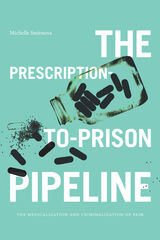

In 1989 Jennifer Johnson was convicted of delivering a controlled substance to a minor. That the minor happened to be Johnson's unborn child made her case all the more complex, controversial, and ultimately, historical. Stephen R. Kandall, a neonatologist and pediatrician, testified as an expert witness on Johnson's behalf. The experience caused him to wonder how one disadvantaged black woman's case became a prosecutorial battlefield in the war on drugs. This book is the product of Kandall's search through the annals of medicine and history to learn how women have fared in this conflict and how drug-dependent women have been treated for the past century and a half.
Kandall's sleuthing uncovers an intriguing and troubling story. Opium, laudanum, and morphine were primary ingredients in the curative "powders" and strengthening "tonics" that physicians freely prescribed and pharmacists dispensed to women a hundred and fifty years ago. Or a woman could easily dose herself with narcotics and alcohol in the readily available form of "patent" medicines sold in every town and touted in popular magazines ("Over a million bottles sold and in every one a cure!"). For the most part unaware of their dangers, women turned to these remedies for "female complaints," such as "womb disease" and "congestion of the ovaries," as well as for "neurasthenia," a widespread but vague nervous malady attributed to women's weaker, more sensitive natures. Not surprisingly, by the latter half of the nineteenth century the majority of America's opiate addicts were women.
The more things change, the more they remain the same: Substance and Shadow shows how, though attitudes and drugs may vary over time--from the laudanum of yesteryear to the heroin of the thirties and forties, the tranquilizers of the fifties, the consciousness-raising or prescription drugs of the sixties, and the ascendance of crack use in the eighties--dependency remains an issue for women. Kandall traces the history of questionable treatment that has followed this trend. From the maintenance clinics of the early twenties to the "federal farms" of mid-century to the detoxification efforts and methadone maintenance that flourished in the wake of the Women's Movement, attempts to treat drug-dependent women have been far from adequate. As he describes current policies that put money into drug interdiction and prisons, but offer little in the way of treatment or hope for women like Jennifer Johnson, Kandall calls our attention to the social and personal costs of demonizing and punishing women addicts rather than trying to improve their circumstances and give them genuine help.

Weaving together a personal narrative and a sociological perspective, Surviving Alex movingly describes how even children from “good families” fall prey to addiction, and recounts the hellish toll it takes on families. Drawing from interviews with Alex’s friends, family members, therapists, teachers, and police officers—as well as files from his stays in hospitals, rehab facilities, and jails—Roos paints a compelling portrait of a young man whose life veered between happiness, anxiety, success, and despair. And as she explores how a punitive system failed her son, she calls for a community of action that would improve care for substance users and reduce addiction, realigning public health policy to address the overdose crisis.

As elected lawmakers confront complex social problems, they inevitably make choices to single out certain populations for government-sanctioned benefits or burdens. Why some groups and not others are targeted is the central question explored in this analysis of the congressional response to two related public health crises.
Weaving case studies from the wars against AIDS and drugs with an empirical analysis of fifteen years of congressional action on these issues, Mark Donovan shows how members of Congress balance problem solving with re-election concerns, paying particular attention to their need to craft compelling rationales for their actions. His analysis shows that, counterintuitive as it may seem, most target populations with negative public images are selected to receive benefits rather than burdens.
Demonstrating that it is possible to analyze simultaneously both policy rhetoric and policy outputs, this book shows how problem frames and policy decisions evolve through the dynamic interplay of conflict participants.
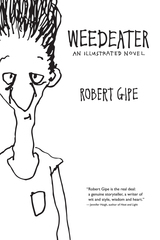
Finalist, 2019 Weatherford Award (Fiction)
A finalist for the 2019 Weatherford Award in Fiction, Weedeater is a contemporary story of love and loss told by a pair of eastern Kentucky mountaineers: Gene, the lovelorn landscaper who bears witness to the misadventures of a family entangled in drugs, artmaking, and politics, a family beset by both environmental and self-destruction; and Dawn Jewell, a young mother searching—for lost family members, lost youth, lost community, and lost heart.
Picking up six years after the end of Robert Gipe’s acclaimed first novel, Trampoline, in Weedeater, the reader finds Canard County living through the last hurrah of the coal industry and the most turbulent and deadly phase of the community’s battle with opioid abuse. The events Gipe chronicles are frantic. They are told through a voice by turns taciturn and angry, yet also balanced with humor and stoic grace. Weedeater is a story about how we put our lives back together when we lose the things we thought we couldn’t bear losing, how we find new purpose in what we thought were scraps and trash caught in the weeds.
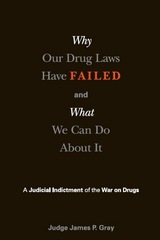
We have built large numbers of prisons, but they are overflowing with non-violent drug offenders. The huge profits made from drug sales are corrupting people and institutions here and abroad. And far from being protected by our drug prohibition policy, our children are being recruited by it to a lifestyle of drug use and drug selling.
Judge Gray's book drives a stake through the heart of the War on Drugs. After documenting the wide-ranging harms caused by this failed policy, Judge Gray also gives us hope. We have viable options. The author evaluates these options, ranging from education and drug treatment to different strategies for taking the profit out of drug-dealing.
Many officials will not say publicly what they acknowledge privately about the failure of the War on Drugs. Politicians especially are afraid of not appearing "tough on drugs." But Judge Gray's conclusions as a veteran trial judge and former federal prosecutor are reinforced by the testimonies of more than forty other judges nationwide.
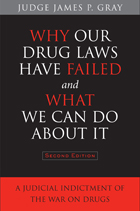
Our drug prohibition policy is hopeless, just as Prohibition, our alcohol prohibition policy, was before it. Today there are more drugs in our communities and at lower prices and higher strengths than ever before.
We have built large numbers of prisons, but they are overflowing with non-violent drug offenders. The huge profits made from drug sales are corrupting people and institutions here and abroad. And far from being protected by our drug prohibition policy, our children are being recruited by it to a lifestyle of drug use and drug selling.
Judge Gray’s book drives a stake through the heart of the War on Drugs. After documenting the wide-ranging harms caused by this failed policy, Judge Gray also gives us hope. We have viable options. The author evaluates these options, ranging from education and drug treatment to different strategies for taking the profit out of drug-dealing.
Many officials will not say publicly what they acknowledge privately about the failure of the War on Drugs. Politicians especially are afraid of not appearing "tough on drugs." But Judge Gray’s conclusions as a veteran trial judge and former federal prosecutor are reinforced by the testimonies of more than forty other judges nationwide.

These are the words with which Margaret, a thirty-three-year-old cocaine-using prostitute, begins her story. In this book, she and four other women, all inner-city hustlers, describe their lives, how they came to be where they are, and where they hope to go.
Margaret, Charlie, Virginia, Tracy, and Laquita are all drug users who are involved in regular criminal activity: prostitution, burglary, shoplifting, robbery, drug selling, petty theft, and various kinds of fraud. Four of the women are black; one is white and Puerto Rican. While all five have been involved in same-sex relationships, three are primarily straight and two are primarily lesbian. They come from working-class or welfare families; some women characterize their mothers as strict, abusive, intolerant, and distant while other mothers are characterized as being concerned, religious, and loving. The women talk frankly about their drug use, their sexual and criminal activities, their childhoods, their personal relationships with their families of origin, children, partners, their fears and future goals, and the ordinary trappings of their lives.
While these accounts describe lives lived at the margins of society, they also reveal women who practice self-evaluation. These are women who have a deep understanding of individual accountability and responsibility. These accounts are connected by themes of violence and poverty, but they are also connected by the variety and richness of these women's lives. The women also assert a control over their activities and talk of independent judgment in terms that we imagine are reserved for men. There is a tendency in criminology to treat the data generated by research on men as fundamentally true for women as well. By allowing female law-breakers to describe their lives in their own way, Pettiway underlines not only their differences from men but also their differences from each other.
However, their stories also reveal their common humanity and their profound will to survive despite all obstacles. These women manage to live self-defined and self-validated lives in a world even more turbulent than that of their mainstream sisters. They share a web of experiences created out of race and ethnicity, sexual orientation, drug use, and urbanization that provides them with meaning and courage. They speak movingly about guilt and responsibility, about rape and intimacy, and about ambition and despair. Through their stories we can grasp the traumas and turning points that lead us all to make bad decisions as well as those ideals and inspirations that can help to redeem us.
READERS
Browse our collection.
PUBLISHERS
See BiblioVault's publisher services.
STUDENT SERVICES
Files for college accessibility offices.
UChicago Accessibility Resources
home | accessibility | search | about | contact us
BiblioVault ® 2001 - 2024
The University of Chicago Press









